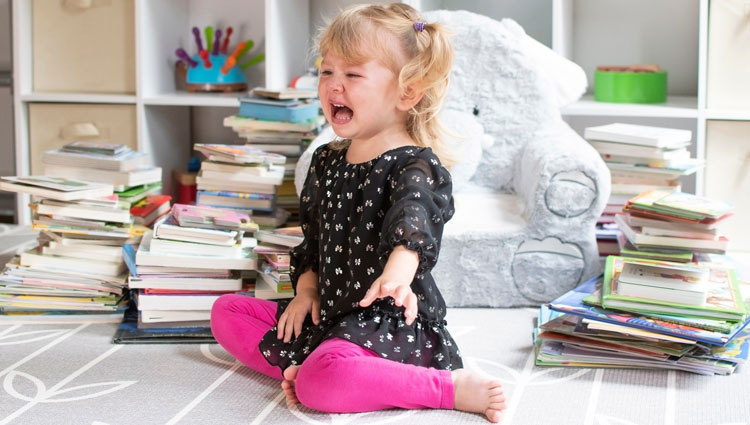Can Today’s Ivy League Students Handle Adversity?
The morning after Donald Trump’s historic presidential election victory was apparently too bleak for young adults to even contemplate going to class. Campuses across the United States witnessed unprecedented responses to a presidential election. At Ivy League schools like Harvard and Yale, many, if not the majority, of students were reportedly so distressed they couldn’t accomplish much more than huddling together in a safe space – and university administrators responded with an array of unusual support measures.
Instead of encouraging resilience, professors canceled classes, and colleges offered soothing distractions like coloring books, Lego sets, milk and cookies, and even “safe spaces” equipped with counselors. These measures prompted significant debate—and disbelief—among those wondering how such students will cope with future adversity if an election win requires this level of consolation. Some of the professors were ill-equipped to deal with Trump’s big comeback as the students, many of which extended course deadlines or adapted scoring on student papers.

The Impact of Treating Adults Like Children
While some viewed these responses as compassionate ways to support students, critics expressed concern about how this type of approach aligns with higher education’s mission of preparing students for real-world challenges. The use of what some considered childlike methods—such as toys and crafts traditionally associated with childhood—raised questions among some onlookers who expected colleges to focus more on fostering resilience and critical thinking in response to adversity.
These wholly divergent responses by liberals and conservatives to the reaction by college students post-Trump win reflect broader debates about the role of emotional support versus resilience-building in higher education. It is particularly within prestigious universities like Harvard and Yale that are known for their academic rigor, that the shift from challenging college environment to warm and fuzzy romper room is the most stark.
“Folks, this isn’t funny anymore. It’s disturbing to treat adults like fragile children,” Robert Pondiscio, a senior fellow at American Enterprise Institute, posted on Twitter.
Ivy League Response To Trump’s Big Win
The situation raises an important question about the future of America’s workforce: Are students at prestigious institutions being prepared for the real world, or are they growing increasingly insulated from it? Treating college students like kindergarten kids will ultimately have disastrous results for them personally and potentially, the United States itself.
In past generations, the very reputation of Ivy League graduates was built on academic rigor, intellectual resilience, and a readiness to take on complex challenges. Historically, Harvard and Yale graduates were considered some of the most prepared for high-stakes careers and had a high work ethic and resilience to show for it. Today, however, many employers are questioning whether this reputation is deserved and if they even want to bother hiring these supposedly top-tier graduates.
The Shift in Ivy League Expectations
In our competitive job market, businesses are seeking potential workers who can actually bring not only intellectual capacity but also grit, adaptability, and a strong work ethic to their business. The practice of coddling students in the face of an election outcome may be creating a generation of workers who will demand similar treatment in their professional lives.
If an Ivy League student can skip a day’s work for a meditation session and yummy snacks after facing an election result they dislike, it begs the question: How will they handle more significant workplace stresses, from major projects to organizational setbacks?
Employers are noticing the trend. They’re seeking graduates who demonstrate resilience and adaptability—qualities that can’t be built with a coloring book and a cup of warm milk. More companies are broadening their recruiting focus to include state schools, tech-focused programs, and institutions with reputations for demanding programs that build true mental and emotional endurance. Many hiring managers are vocal about wanting employees with a backbone, self-discipline, and a practical approach to handling stress.
A Wake-Up Call for Higher Education?
The phenomenon of emotionally fragile students taking days off and seeking emotional support over relatively minor setbacks, like an election result, may prompt higher education to reevaluate its role. Should universities be safe havens from uncomfortable emotions, or should they be arenas that prepare students for the world’s complexities and uncertainties? Perhaps it all began with silencing dissenting voices on campus and tolerating a second class citizen atmosphere for those who dared not to follow the herd mentality and submit themselves for a liberal purity test.
Resilience isn’t built through avoidance or pampering; it’s developed through experience, setbacks, and the internal drive to carry on in the face of disappointment. By insulating college age students from stress, these colleges are likely creating graduates who will flounder in the workforce…if they can even get hired in the first place.
In the workplace, adversity is inevitable. When a project faces unexpected delays, budgets are slashed, or a demanding client criticizes a proposal, workers don’t have the option of a “safe space” or an afternoon off to craft their way back to composure. The successful completion of real-world tasks demands that people persevere, adapt, and press on even when circumstances are challenging.
The New Demand: Resilient Graduates
As more companies observe these trends among Ivy League students, many are turning toward graduates who exhibit resilience and determination. Employers report that traits such as dependability, grit, and the ability to navigate setbacks are harder to find in graduates from institutions that focus on shielding students from adversity rather than teaching them how to overcome it. As a result, hiring managers are often choosing candidates with demonstrated resilience, sometimes from state universities, technical colleges, or military backgrounds, over Ivy League degrees alone.
Real-World Skills Aren’t Learned in a “Safe Space”
Employers are, of course, willing to offer accommodations for true emotional or mental health challenges, but there is a difference between genuine hardship and mere discomfort. In the real world, deadlines don’t wait for recovery time from life’s disappointments, and most jobs don’t offer “mental health kits” with crayons and coloring books after challenging feedback from a client or colleague. Real-world skills are learned through exposure to challenges and through the practice of failing, learning, and confronting, rather than retreating from, life’s inevitable struggles.

Conclusion: A Call for Real Resilience
For Ivy League institutions to continue as breeding grounds for future leaders, they may need to reconsider how they prepare students for the real world. True resilience comes from experience, perseverance, and the inner strength to handle adversity without the expectation of coloring pages and cookies. Otherwise, students will leave the ivory tower ill-equipped for a reality that requires not just intellectual capability but emotional and practical resilience.
In a world that values both technical skills and the tenacity to see things through when the going gets tough, universities would do well to prioritize building that strength. After all, the real world doesn’t come with a coloring book.

